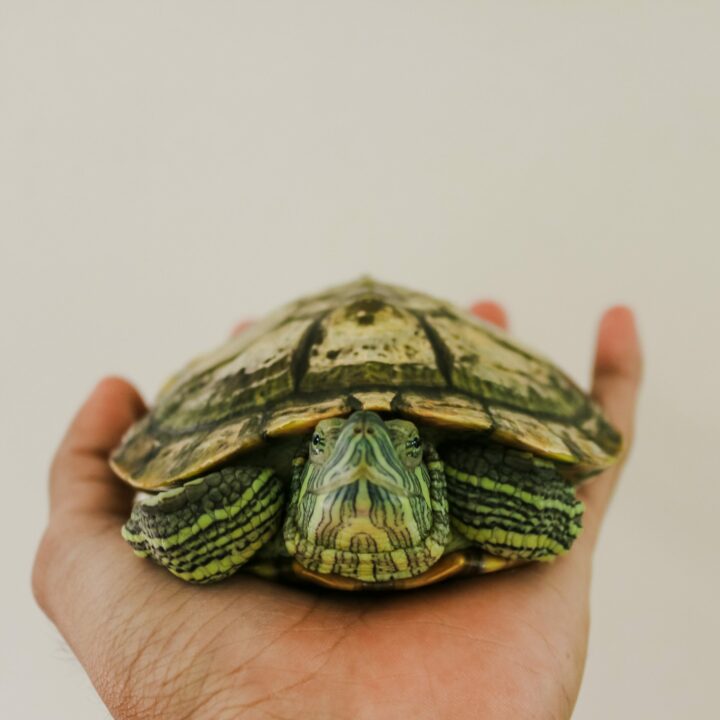Welcome to the captivating world of home reptiles, where exotic species thrive and enthusiasts are immersed in a realm of scaly wonders. However, amidst the allure and fascination, it is crucial to explore the legal considerations and permits that come into play when keeping certain reptile species.
In this article, we delve into the intriguing world of reptile ownership regulations, guiding you through the necessary steps to ensure a compliant and fulfilling reptilian journey.
Which reptile species require legal considerations for ownership?
Various reptile species require legal considerations for ownership, primarily to protect the well-being of both the reptiles themselves and the environment. The specific species that fall under these considerations may vary depending on your location and the governing authorities.
Generally, reptiles such as venomous snakes, large constrictors, endangered species, and exotic reptiles are more likely to require legal permits or special considerations.
It’s important to research and familiarize yourself with the regulations in your area to ensure you’re in compliance and able to provide a safe and suitable environment for your scaly companion.
Are there specific permits required for owning certain reptiles?

Yes, owning certain reptiles may require specific permits to ensure responsible ownership and safeguard the welfare of the reptile and the community. These permits are typically designed to regulate the ownership, breeding, and trade of restricted reptile species.
The specific permits required can vary depending on the species and your location, and they may include licenses for keeping venomous reptiles, endangered species permits, or exotic animal permits.
Acquiring the necessary permits demonstrates your commitment to responsible reptile ownership and contributes to the overall conservation efforts for these fascinating creatures.
What are the potential legal implications of owning restricted reptile species?
Owning restricted reptile species without the proper permits and legal compliance can lead to serious legal implications. Depending on the jurisdiction, consequences may include hefty fines, confiscation of the reptile, or even criminal charges.
It’s important to understand and adhere to the laws governing restricted reptile ownership to avoid such consequences.
By respecting the regulations and acquiring the appropriate permits, you not only ensure your own legal safety but also contribute to the preservation and protection of these unique reptile species.
How do regulations differ for native reptiles versus exotic species?
Regulations regarding native reptiles and exotic species can differ significantly, as they are often governed by separate sets of laws and regulations. Native reptiles are typically those species naturally occurring in a specific geographic region, while exotic species originate from different regions and are not native to the area.
The regulations for native reptiles tend to be more relaxed, as they are already adapted to the local environment. In contrast, exotic species may require stricter regulations due to potential ecological impacts, disease transmission, or invasiveness.
It’s crucial to familiarize yourself with the specific regulations governing both native and exotic reptiles in your area to ensure compliance and responsible ownership.
Are there limitations on the number of reptiles one can own?
In some jurisdictions, there may be limitations on the number of reptiles an individual can own. These limitations are in place to prevent overcrowding, maintain the welfare of the reptiles, and prevent potential environmental issues.
The specific limitations can vary depending on local regulations and the type of reptile being owned. It’s important to research and understand the restrictions in your area to ensure you can provide proper care and attention to each reptile you own while remaining within the legal limits.
What are the crucial factors determining eligibility for reptile ownership permits?
Several crucial factors determine eligibility for reptile ownership permits. These factors typically include demonstrating adequate knowledge and experience in reptile care, providing appropriate housing and husbandry conditions, and having the financial means to support the reptile’s well-being.
Authorities may also consider the size and type of reptile you intend to own, ensuring that you have the necessary skills and resources to handle and care for the species responsibly. By meeting these eligibility criteria, you demonstrate your commitment to providing a suitable environment and responsible care for your reptilian companion.
Are there age restrictions for owning certain reptiles?

Age restrictions for owning certain reptiles can vary depending on the species and local regulations. Some reptiles, particularly those that pose a higher level of risk or require specialized care, may have age restrictions in place.
These restrictions are typically intended to ensure that the owner has the maturity, responsibility, and knowledge necessary to provide proper care for the reptile.
It’s important to check the specific regulations in your area to determine if there are any age restrictions for owning the reptile species you are interested in. Additionally, it is always advisable for minors to have adult supervision and guidance when owning and caring for reptiles.
Can reptile ownership permits be obtained online or through local authorities?
Reptile ownership permits can typically be obtained through a combination of online resources and local authorities. Many jurisdictions have online platforms or websites where you can access information, application forms, and guidelines regarding reptile ownership permits.
These platforms often provide a convenient and streamlined process for submitting applications and receiving permits. However, it’s important to note that certain aspects of the permit acquisition process may require interaction with local authorities.
This could include submitting documentation, attending inspections or interviews, or receiving final approval from relevant officials. By utilizing both online resources and local authorities, you can navigate the permit acquisition process efficiently and ensure compliance with the necessary regulations.
What are the common steps involved in acquiring reptile ownership permits?
Acquiring reptile ownership permits typically involves several common steps to ensure responsible ownership and adherence to regulations. These steps may include:
- researching and understanding the specific requirements and regulations for reptile ownership in your area
- completing an application form with accurate and detailed information, providing documentation such as proof of identification, proof of residence, and any necessary certifications or qualifications
- ensuring your reptile’s habitat and enclosure meet the required standards
- potentially undergoing inspections or interviews to assess your knowledge
- preparedness for reptile ownership
- paying any applicable fees associated with the permit.
Are there different permits for personal ownership versus breeding reptiles?
Yes, there are often different permits required for personal ownership versus breeding reptiles. While permits for personal ownership focus on ensuring the welfare and responsible care of the reptile, breeding permits are specifically designed to regulate the breeding and sale of reptiles.
Breeding permits may require additional documentation, such as proof of knowledge and experience in reptile breeding, appropriate facilities for housing and caring for the breeding reptiles, and compliance with specific breeding guidelines and ethical considerations.
It’s essential to familiarize yourself with the distinct permit requirements for personal ownership and breeding if you intend to engage in reptile breeding activities.
Do reptile ownership regulations vary from state to state or country to country?

Yes, reptile ownership regulations can vary significantly from state to state and country to country. Different jurisdictions have their own specific laws, regulations, and requirements regarding reptile ownership, permits, and restrictions.
These variations can encompass aspects such as permitted species, enclosure specifications, permit application processes, limitations on ownership, and breeding regulations.
It is crucial to research and understand the regulations in your specific location to ensure compliance with the local laws governing reptile ownership.
What are the potential penalties for non-compliance with reptile ownership regulations?
Non-compliance with reptile ownership regulations can lead to various potential penalties, depending on the severity of the violation and the jurisdiction. Penalties may include fines, confiscation of the reptile, revocation of permits, legal action, or even criminal charges in more severe cases.
The specific penalties can vary from monetary fines for minor infractions to more severe consequences for serious breaches of reptile ownership regulations. It is important to understand and adhere to the regulations in your area to avoid these potential penalties and ensure the well-being and legal compliance of your reptile ownership.
Are there any reptile species exempt from legal considerations and permits?
While there may be certain reptile species that are exempt from specific legal considerations and permits in certain jurisdictions, it is crucial to note that exemptions vary widely. Generally, exemptions may apply to native reptile species that are commonly found in the area and are considered low risk in terms of conservation or environmental impact.
However, even if a particular reptile species are exempt from permits, it is essential to ensure that you are providing appropriate care, a suitable habitat, and meeting the welfare needs of the reptile. It’s always recommended to consult local authorities or reptile experts to determine if any exemptions exist and to ensure responsible ownership practices.
How can I stay informed about any updates or changes in reptile ownership regulations?
To stay informed about updates and changes in reptile ownership regulations, there are several helpful strategies you can employ. Regularly checking the websites of local wildlife agencies, conservation departments, or reptile-specific organizations in your area can provide valuable information on any regulatory updates or changes.
Subscribing to newsletters or email lists of relevant authorities or organizations can ensure that you receive timely notifications about any amendments to reptile ownership regulations.
Participating in online forums, social media groups, or local reptile enthusiast communities can also keep you updated through discussions and shared news. By actively seeking information and engaging with reputable sources, you can stay informed and adapt to any changes in reptile ownership regulations effectively.
Are there any advocacy groups or resources available to assist with navigating reptile ownership laws?
| Reptile Species | Legal Considerations | Permits Required |
|---|---|---|
| Venomous Snakes | Special handling and safety precautions | Permit for ownership and handling |
| Large Constrictors | Secure and appropriate housing requirements | Permit for ownership and containment |
| Endangered Species | Protection and conservation efforts | Permit for ownership and breeding |
| Exotic Reptiles | Prevent potential ecological impact | Permit for ownership and importation |
| Native Reptiles | Compliance with local habitat protection | May require permits for collection or relocation |
Yes, there are numerous advocacy groups and resources available to assist reptile owners in navigating the complex landscape of reptile ownership laws. These groups and resources often provide valuable guidance, support, and information on legal requirements, permit processes, responsible care practices, and conservation efforts.
Local herpetological societies, reptile clubs, and breeders associations can be excellent sources of guidance and networking opportunities. Reptile-specific publications, online forums, and websites dedicated to reptile ownership provide comprehensive information on legal considerations and permit requirements.
Additionally, consulting with experienced reptile enthusiasts, veterinarians specializing in reptiles, or local wildlife authorities can offer personalized advice and assistance in navigating reptile ownership laws.
Closing thoughts
In conclusion, navigating the legal considerations and permits involved in reptile ownership is a vital aspect of being a responsible reptile enthusiast. Understanding the specific regulations, acquiring the necessary permits, and complying with the guidelines ensures the well-being of the reptiles, protect the environment, and help preserve these fascinating species for future generations.
By familiarizing yourself with the laws in your jurisdiction, following the necessary steps for obtaining permits, and staying informed about any updates or changes, you can embark on a rewarding reptile ownership journey with confidence.
Remember, responsible ownership not only benefits the reptiles but also contributes to the conservation and appreciation of these remarkable creatures. Enjoy your reptilian companionship while respecting and adhering to the legal framework that governs reptile ownership.




